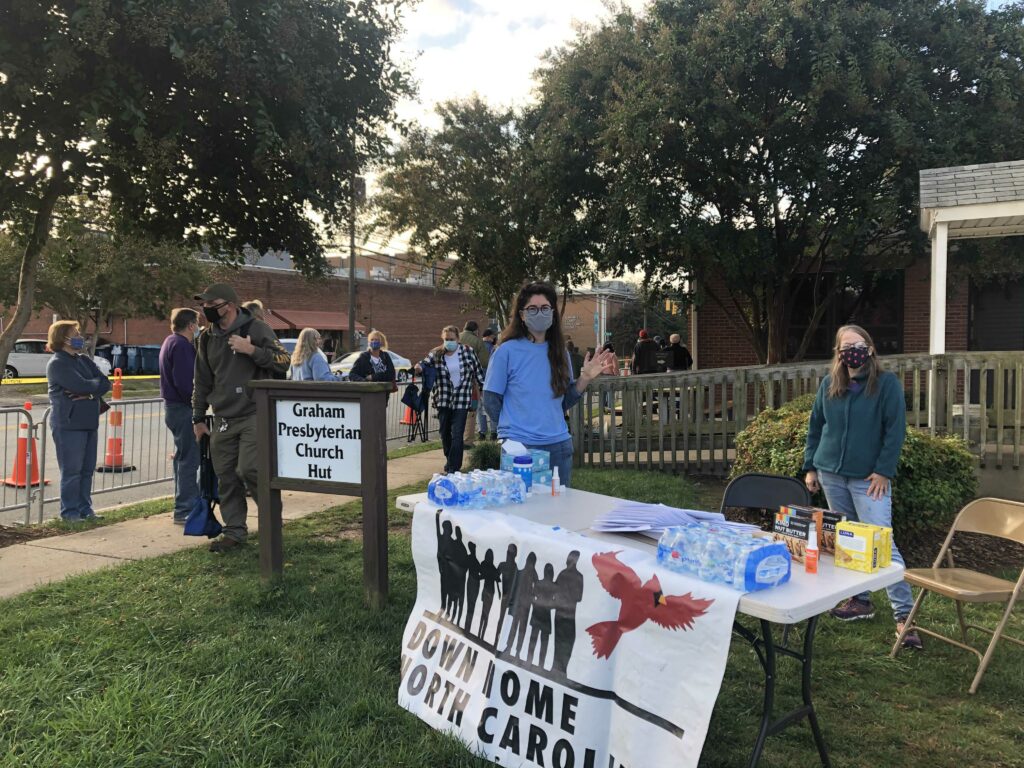Filed under: Community Organizing, Interviews, Radio/Podcast, Southeast

Long-running anarchist podcast and radio show the Final Straw speaks with organizers involved in DownhomeNC, based out of Alamance County.
This week on the show I’m speaking with three folks engaged in organizing in the rural Alamance County, North Carolina, and it’s capital of Graham. All three work with the 501c4 political non-profit, DownhomeNC which in Alamance has been working on a range of engagements including running local candidates for office, doing get-out-the-vote work, sparking conversations with rural residents of the county, running a bail fund and working on bail reform, rent relief and operating food distribution. Dreama Caldwell, one of our guests, ran on a platform of bail reform to be the first Black woman elected to the County Commission, though she was not elected, is a mother, and as an Abolitionist has been working to abolish cash bail and change the condition for people of Color and poor folks as relates to the Alamance courts and jail. Sugalema is an organizer, a mom, and the daughter of undocumented parents from Mexico who’s been living in Alamance for the last decade. Gwen is a mother from a white, working class background who has also worked to support Alamance organizers through Downhome on a number of campaigns. You can learn more about the organization at DownhomeNC.org and their various social media pages.
As a side note, the folks who produce The Final Straw do not endorse electoralism as a strategy for lasting change or community power. We are anarchists. There are plenty of places you can go to find anarchist critiques of engaging in electoral politics, sometimes with anarchists or anti-authoritarians advocating limited engagement in elections but usually calling for abstention. Even though DownhomeNC is not an anarchist organization, we do feel like the experiences of Sugalema, Dreama and Gwen are important to share because they talk about the work of changing minds and building relationships in the rural south where an autonomous left or anarchist movement doesn’t exist… like most of the world. They are intelligent and impassioned women doing hard work to grow community resistance and engagement. Abolition also includes the complicated work of decreasing the harm caused by systems of oppression like the police, courts, borders, white supremacy and capitalism while simultaneously building discourse against those institutions that impose harm. We really hope that listeners will get a lot from this conversation.





